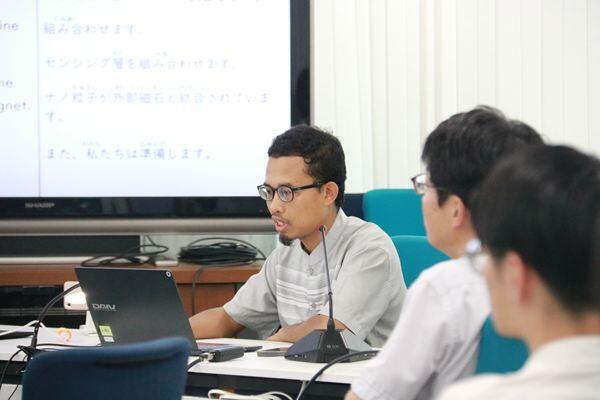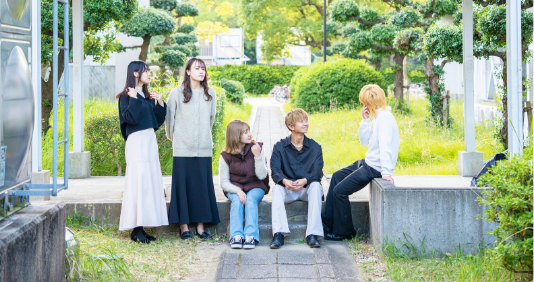リサーチコアセミナーを開催しました/Research Core Seminar was held
8月6日(水)、事務局2階会議室において、研究紹介企画「リサーチコアセミナー」(オンライン併用型)を開催しました。
この企画は、学内の多様な研究者を知り、相互に研究内容の理解や研究者間の交流を深めることを目的として開催しています。
今回は、国際戦略機構所属(工学研究科兼務)Muhammad Arifin(ムハンマド アリフィン)助教から「Computational Approaches to Biosensor Material Design for Sustainability(計算科学アプローチによる持続可能な未来に向けたバイオセンサー材料設計)」と題して、研究の背景や現在取り組んでいる研究内容をご紹介いただきました。
On Wednesday, August 6, the Research Core Seminar, hybrid-format research introduction event, was held in the meeting room on the second floor of the Administration Bureau. This seminar series aims to foster mutual understanding and collaboration among researchers across various fields within the university.
This session featured Assistant Professor Muhammad Arifin, affiliated with the Organization for International Education and Research and concurrently with the Graduate School of Engineering. He delivered a presentation titled "Computational Approaches to Biosensor Material Design for Sustainability," introducing the background and current progress of his research.
Muhammad Arifin(ムハンマド アリフィン)助教は、海外の協定校から若手教員を1年以内の期間で受け入れる「MIE-U国際交流協定校外国人若手教員受入れプログラム」で、インドネシアのガジャ・マダ大学から来日されています。
Dr. Arifin is visiting from Gadjah Mada University in Indonesia under the "MIE-U Program for Accepting Junior Faculty from International Partner Institutions" which invites junior faculty members from partner institutions overseas for short-term research stays of up to one year.
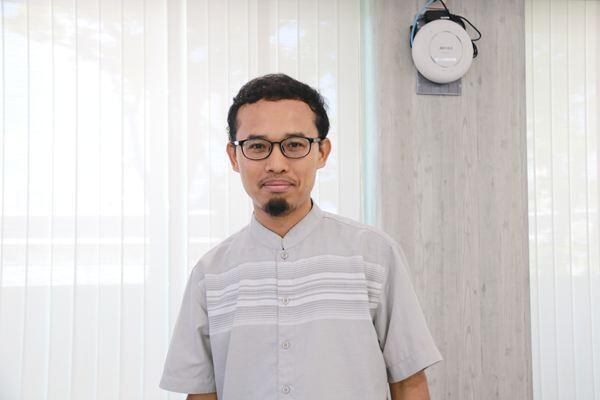
会議室には、学長、金子理事をはじめ、学生、教職員、URAが集い、約30名が対面およびオンラインで参加しました。
Approximately 30 participants, including the President Ito, Executive Vice President Kaneco, students, faculty members, and URAs, attended the seminar both in person and online.
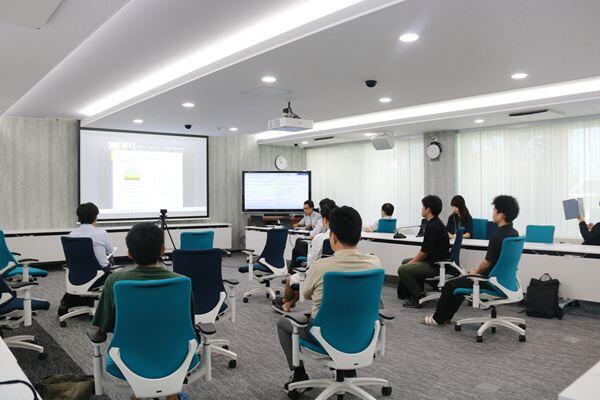
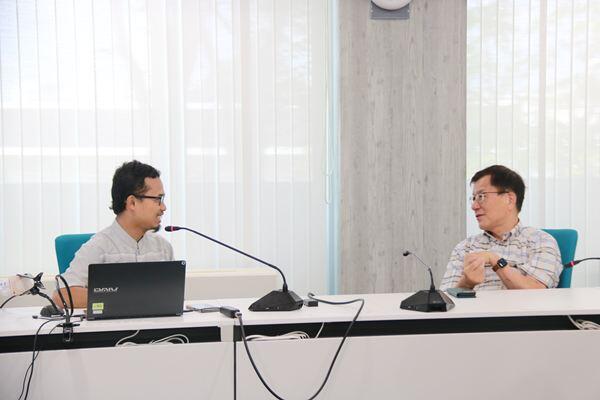
セミナーは全て英語で行われ、食品安全保障におけるSPRセンサーを用いた細菌検出の有効性や、実験的制約を克服するための第一原理計算の利用など、アリフィン助教の専門分野に関する最近の研究が紹介されました。また、本学の工学研究科 中村教授のスピントロニクス研究室での研究についても言及され、質疑応答では、発表内容に関する質問やガジャ・マダ大学に関する質問が寄せられました。
The presentation was conducted entirely in English and covered recent research in Dr. Arifin's field, including the effectiveness of using SPR sensors for detecting bacteria to ensure food safety and the application of first-principles calculations to overcome experimental limitations. Dr. Arifin also referred to ongoing research in Professor Nakamura's spintronics laboratory at the Graduate School of Engineering, highlighting the potential of indium oxide as a next-generation sensor material. During the Q&A session, participants posed questions related to the presentation as well as inquiries about Gadjah Mada University, leading to a lively and engaging discussion.
「MIE-U国際交流協定校外国人若手教員受入れプログラム」でお越しいただいた先生による発表は、Arifin助教で3回目となります。今回の研究紹介は、これからの研究にも、ダイバーシティの点からも今後に大きな影響を与えるものとなり、非常に有意義なセミナーとなりました。
This was the third seminar in which a faculty member invited through the "MIE-U Program for Accepting Junior Faculty from International Partner Institutions" gave a presentation, and this time it was Dr. Arifin.
His research introduction was highly impactful--not only for future studies, but also from the perspective of diversity. It was a truly meaningful and inspiring seminar.
